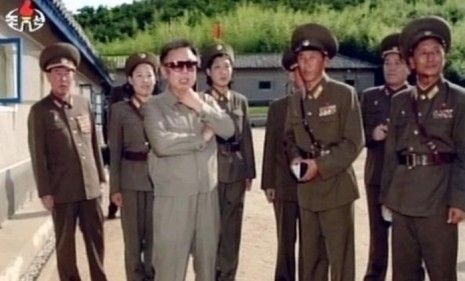North Korea's 'horrifying' health care system
Hospitals without electricity. Operations without anesthetic. A population slowly dying of malnutrition. Amnesty International says North Korean health care is deadly

Here's a tip for the handful of tourists who visit North Korea each year: Don't get sick. A report from Amnesty International says health-care standards in the communist country are appallingly low, with hospitals that barely function, operations performed without anesthetic, and rampant disease made worse by malnutrition (Watch a report about North Korea's health care system.) Here's a brief guide:
How bad are the hospitals in North Korea?
With the government spending less than $1 per person on health care per year, many hospitals operate without electricity or heat, and doctors are forced to work by candlelight. Most hospitals no longer stock medicines because staff sell them on the black market. And doctors perform serious operations without anesthetic, with orderlies restraining the patient while the doctor gets down to the grisly work. "I was in so much pain that I screamed and eventually fainted from the pain," a 24-year-old told Amnesty after having his leg amputated.
Subscribe to The Week
Escape your echo chamber. Get the facts behind the news, plus analysis from multiple perspectives.

Sign up for The Week's Free Newsletters
From our morning news briefing to a weekly Good News Newsletter, get the best of The Week delivered directly to your inbox.
From our morning news briefing to a weekly Good News Newsletter, get the best of The Week delivered directly to your inbox.
Why are people in North Korea so sick?
Food shortages have caused widespread malnutrition. More than a million North Koreans died of famine in the 1990s, and authorities began encouraging people to eat only two meals a day. The United Nations estimated in 1996 that wild foods, such as tree bark, roots, and grass, made up about 30 percent of the average North Korean's diet. And despite recent improvement, food is still in short supply. A bungled currency re-evaluation in 2009 doubled the price of rice overnight, leaving thousands to starve to death. And Amnesty says North Korea is in the throes of a tuberculosis epidemic brought on by malnutrition.
What can be done about it?
Very little. The U.N. continues to sanction North Korea due to its nuclear program and its spat with South Korea, although Amnesty says critical medical and food aid shouldn't be used "as a political football." The North Korean government denies there's even a problem, and boasts that its universal health care system provides free treatment for the country's 24 million citizens. The U.N.'s health arm actually disputes Amnesty's findings, too. Amnesty's information came "from people who aren't in the country," said a spokesman. The WHO director-general Margaret Chan visited North Korea in April and reportedly described its health system as the "envy of the developing world."
Sign up for Today's Best Articles in your inbox
A free daily email with the biggest news stories of the day – and the best features from TheWeek.com
Why the disagreement?
According to the BBC's Imogen Foulkes, UN agencies in North Korea may be "reluctant to openly criticize the country for fear of jeopardizing their work there." Amnesty International says its account is solid, as it came from 40 North Korean defectors who left the country between 2004 and 2009. Amnesty also interviewed health professionals who worked with North Koreans, but were unable to get into the country to get a first-hand account. The sources said that Pyongyang's claim of universal health care only works on paper — in reality, patients are refused treatment if they cannot pay for it. Meanwhile, says Ravi Somaiya at Newsweek, Korean dictator Kim Jong-Il is "reported to enjoy an exquisite diet of delicacies imported from around the world, and is said to have a very discerning palate."
Sources: Amnesty International, BBC News (2), Newsweek
-
 'A good deal is one in which everyone walks away happy or everyone walks away mad'
'A good deal is one in which everyone walks away happy or everyone walks away mad'Instant Opinion Opinion, comment and editorials of the day
By Justin Klawans, The Week US Published
-
 How will home insurance change after LA's fires?
How will home insurance change after LA's fires?Today's Big Question Climate disasters leave insurance industry in crisis
By Joel Mathis, The Week US Published
-
 Blue Origin conducts 1st test flight of massive rocket
Blue Origin conducts 1st test flight of massive rocketSpeed Read The Jeff Bezos-founded space company conducted a mostly successful test flight of its 320-foot-tall New Glenn rocket
By Peter Weber, The Week US Published